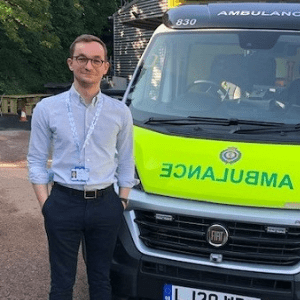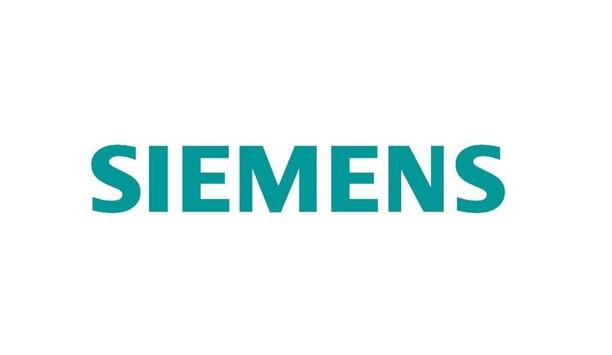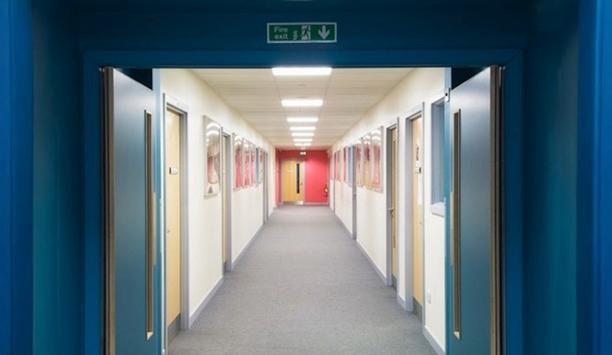Three Rapid Response Vehicles (RRVs) will be trialled by East of England Ambulance Service NHS Trust (EEAST) as part of the NHS’s move towards zero emissions vehicles.
EEAST has successfully bid for £250,000 from NHS England which will fund two electric Skoda all-wheel drive cars, an electric Vauxhall van, their conversion to medically equipped response vehicles and the necessary charging infrastructure for each of the vehicles.
The funding is part of a new NHS England pilot to support ambulance trusts to trial a range of new zero emission response vehicles. The 12-month pilot will be subject to rigorous evaluation to inform the next steps to de-carbonize the NHS fleet while improving patient care.
Skoda Enyaq iV 80x all-wheel vehicle
Instructors from the Trust’s driver training team have already put the Skoda Enyaq iV 80x all-wheel vehicle to the test and found that it compares favourably with diesel equivalents being currently used. One of the Skodas will be used as a ‘standard’ Rapid Response Vehicle (RRV), used to get a paramedic response to patients quickly.
The second will be used in a similar role in conjunction with our other blue-light partners (RAF, Fire and Police), initially in Bedfordshire, but later in Cambridgeshire, Norfolk and Essex, as different programmes and infrastructure configurations are tested. The Vauxhall Vicaro-E van, built in the UK at Ellesmere Port, will be trialled in various roles, including a falls response vehicle and a mental health response vehicle.
Committment to net-zero Carbon emissions by 2045
EEAST is pleased to take part in this pilot, which will not only help us trial the latest electric vehicles
Tom Abell, Chief Executive of EEAST, said, “The NHS has committed to being net-zero of carbon emissions by 2045 – five years ahead of the UK’s nationally set target. It is vital that we understand how this modern technology can help to improve our response times to patients and deliver cost savings over the longer term."
“We are therefore very pleased to take part in this pilot, which will not only help us trial the latest electric vehicles, but also enable us to start installing the electrical infrastructure that will enable us to be ready for the future.”
Challenges of air pollution
James Cook, Director for Community Care, Mental Health and Ambulance Improvement Support, NHS England and NHS Improvement said, “Air pollution alone contributes to 1 in 20 deaths in the UK and reducing emissions will support the reduction of cases of asthma, cancer and heart disease.
"Cleaner transport means cleaner air for our patients, and we’re very proud to be working with East of England Ambulance Service and others across the country to begin the introduction of these new electric vehicles, which will not only reduce emissions, but also improve care for patients and take the pressure off of traditional double-crew ambulances.”
Going carbon-free
With the right vehicles, infrastructure and systems, electric vehicles can be used without operational impact
Ian Palmer, Driver training quality lead for EEAST, said, “The implications of going carbon-free will be wide-ranging as our entire fleet will have to eventually move away from internal combustion engines.
“Initial trials have shown that with the right vehicles, infrastructure and systems we can use electric vehicles without impacting on operational performance – or, most importantly, the safety of patients.”
Charging infrastructure
The £250,000 funding will also include money to install charging infrastructure. EEAST already has 7kw chargers at a number of its sites:
- Hellesdon
- Luton
- Barton Mills
- Peterborough
- Kings Lynn
- Chelmsford
- Watford
- Great Yarmouth
- Stowmarket
The funding will also allow the introduction of fast 22kw chargers in Bedfordshire and Essex. EEAST covers a region of 7,500 square miles over six counties, and each year has 1,000 vehicles travelling almost 12.4 million miles to reach our patients. It is expected EEAST will share its learning from the trial with other NHS partners and will also use the scheme to inform its own vehicle procurement in the future.

















